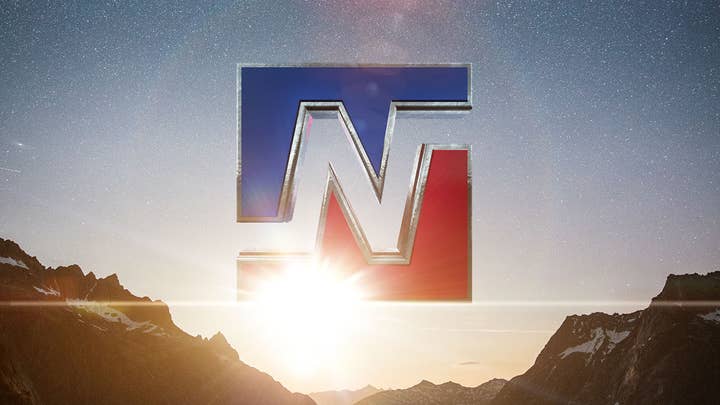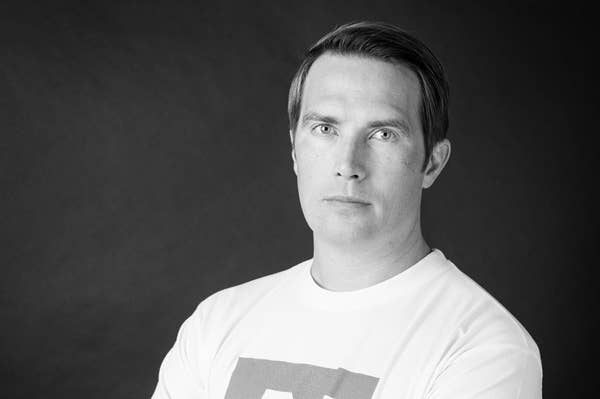Next Games: From Angry Birds to The Walking Dead
CEO Teemu Huuhtanen on leaving Rovio to start the next wave of Finnish success stories
When the world finally came to hear of Teemu Huuhtanen's latest project, it wasn't quite in the manner he expected. As the former vice president of mergers and acquisitions for Rovio his next step was always likely to be noticed by the press, but when the news broke the name of his new company didn't even make the headline.
The Wall Street Journal's take? "Angry Birds Maker Loses Another Top Executive." Huuhtanen smiles ruefully at the memory and shakes his head. When it comes to success on the scale of Rovio there's no such thing as a clean break.
"The main drive was to do something of our own," he says of Next Games, the company that very nearly made headlines back in September last year, and of which he is co-founder and CEO. "A lot of people have left Rovio, and I'm sure people will leave Supercell and successful other companies, too. Some people just want to do their own thing."
"A lot of people have left Rovio, and I'm sure people will leave Supercell and successful other companies, too. Some people just want to do their own thing"
Huuhtanen's career to date has kept him in close proximity to people 'doing their own thing'. Before overseeing M&A at Rovio, he worked in business development at Sulake for almost a decade, and in that time he developed a keen understanding of what it takes to succeed - and to fail - in modern game development. In terms of valuable insight, one could scarcely ask for more.
"I was in [corporate development], and that's kind of where everything lands: who's trying to sell their company, who's raising money," he says. "It's not like that type of information is something you can just take with you, but you can make your own vision based on the understanding of what successful companies are built on."
Huuhtanen describes a certain entrepreneurial spirit, evident within him all the way back in 1999 when he founded his first mobile gaming company. That drive never quite leaves a person, he explains, particularly in the sort of environment created by the meteoric trajectory of a company like Rovio. The "Angry Birds Maker" had indeed lost one of its top executives, but it was no slight against his former employer.
"It was really the opportunity, with the team that was in place," he says of his reasons for choosing the uncertainty of Next Games over the supreme comfort and security of his old position. Indeed, Huuhtanen is quick to mention the names of his co-founders, who he met through Jari Ovaskainen, one of the seed investors for Supercell and a doyen of the Finnish VC scene.

There's CPO Joakim Achrén, the former director of analytics at Supercell and one of Finland's leading experts in free-to-play. There's creative director Mikael Achrén, who was the art director at Bugbear Entertainment, developer of the Flatout series and Ride Racer: Unbounded. There's CTO Kalle Hiitola, who ran his own company, Mindlab, for more than 15 years. And, finally, there's lead game programmer Jaako Jumisko, who Huuhtanen describes as perhaps Finland's most skilled Unity coder.
This is Next Games' team of "rockstars," Huuhtanen says. "All the pieces just came together."
"When you have Supercell and Rovio and all these other companies on your home turf, the bar is very high already. We don't even have to look to King over in Sweden. This is the same country, the same people. That drives a lot of it.
"If you tried to launch a game now the way Zynga did years ago it wouldn't work"
"We're one of the first companies in what I like to think of as a second wave; people coming from Rovio or Supercell or even Remedy, who have seen great success and been a part of really big projects. So they have everything a business needs to become the next success story. You can read about Clash of Clans all you want, but if you've been part of that team - it's like day and night."
At the time of our conversation - at Casual Connect Europe in Amsterdam - Next Games comprised 15 people, with another 10 open positions that Huuhtanen expected to fill by the summer. Since then, the company has closed a funding round worth $6 million, and revealed one of its two in-development projects to be a mobile game based on the seemingly unstoppable Walking Dead IP. Looking back, it isn't hard to see why Huuhtanen had such confidence at the company's future direction.
"We know exactly what we want to do [with the games]," he says. "It was set in stone when we started the company. We knew the type of things we wanted to do, and which IPs, and so forth."
And Next Games has a desire to do things differently. In fact, the company's name is a reference to the 'next step' for free-to-play, the business model it intends to use in all of its products. Huuhtanen is guarded as to what that means, exactly, but he is adamant that Next Games intends to move forward from the mistakes made by other players in the space
"You can read about Clash of Clans all you want, but if you've been part of that team - it's like day and night"
"Free-to-play isn't going anywhere, but there are a lot of features of free-to-play that will go away," he says. "Like in any business, the product evolves and the consumers evolve. If you tried to launch a game now the way Zynga did years ago it wouldn't work. Look how they did in mobile; they're kinda okay, but there are fundamentals guiding their mobile efforts that are probably deep within the organisation still."
And it doesn't stop there. When the conversation moves on to the escalating cost of user acquisition, Huuhtanen points to buying an audience as something commonly accepted as a fact of doing business in the free-to-play space, but it holds no clear guarantee of success. Indeed, it can pave the way to a costly failure.
"A lot of companies have been following what Supercell was doing - buying their users - but I think that, at the same time, they forgot that there are other ways of promoting your game," he says. "Buying customers is here to stay, but the question now is how much you want to focus on it over the other options.
"Flappy Bird has proved the point. You can still be successful without spending any money, just like Rovio - Rovio didn't buy any users. A really good game will always find its audience. That's a reality."

